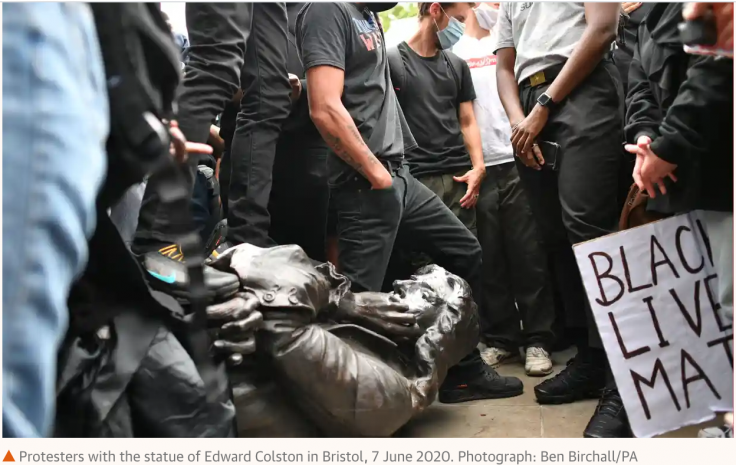What We're Reading This Week

Dexter Govan
Pankaj Mishra, ‘Watch this man’, London Review of Books
Mishra’s masterful and sharp review of Niall Ferguson’s The West and the Rest from 2011 is now available online and includes the correspondence between the two in Letters. Almost ten years on, its contemporary relevance is striking.
Natasha Trethewey ‘America the beautiful: three generations in the struggle for civil rights’, Financial Times
Natasha Trethewey recounts a familial history of black struggle and resistance across three generations.
David Olusoga, ‘The toppling of Edward Colston’s statue is not an attack on history. It is history’ The Guardian
As the statue of a slaver is torn down and thrown to the water, David Olusoga thoughtfully reflects on its significance to Bristol and the moment we are in.
Michelle Alexander, ‘America, this is your chance’, New York Times
‘Our democracy hangs in the balance. This is not an overstatement.’ Michelle Alexander writes on the riots sweeping America and the necessity of further action to address racism in the United States.
‘Seeds of Resistance’ Aesthetica
This gorgeous review of Pablo Albarenga’s award winning photograph series Seeds of Resistance highlights the struggles of environmental activists and indigenous peoples across south America.
Liat Spiro
William O. Gardner, "Liquid Cities," Places Journal
Gardner analyzes the history of the Metabolist movement, cybernetics, control space, ephemerality, consumerism, and techno-orientalism among architects and science fiction writers in Japan from the 1960s to 1990s.
Jo Guldi, "The Birth of Rent Control," e-flux
Guldi traces the history of rent control back to nineteenth-century anticolonial politics in the British Empire, particularly the "Land War" in Ireland.
Stuart Schrader, "Police Reform Won't Fix a System That Was Built to Abuse Power," The Nation
Schrader reveals the history of police reformism, arguing that it has served to expand funding and access to military technologies while positioning police as a powerful interest group free from accountability. His analysis starts with International Association of Chiefs of Police (IACP) collaboration with the CIA and U.S. national security state in the 1950s and 1960s to train autocrats' police forces in Iran, Indonesia, Thailand, and Bolivia and follows the thread domestically through the 1968 Omnibus Crime Bill, the Law Enforcement Assistance Administration, and the 1994 Violent Crime Control and Law Enforcement Act.